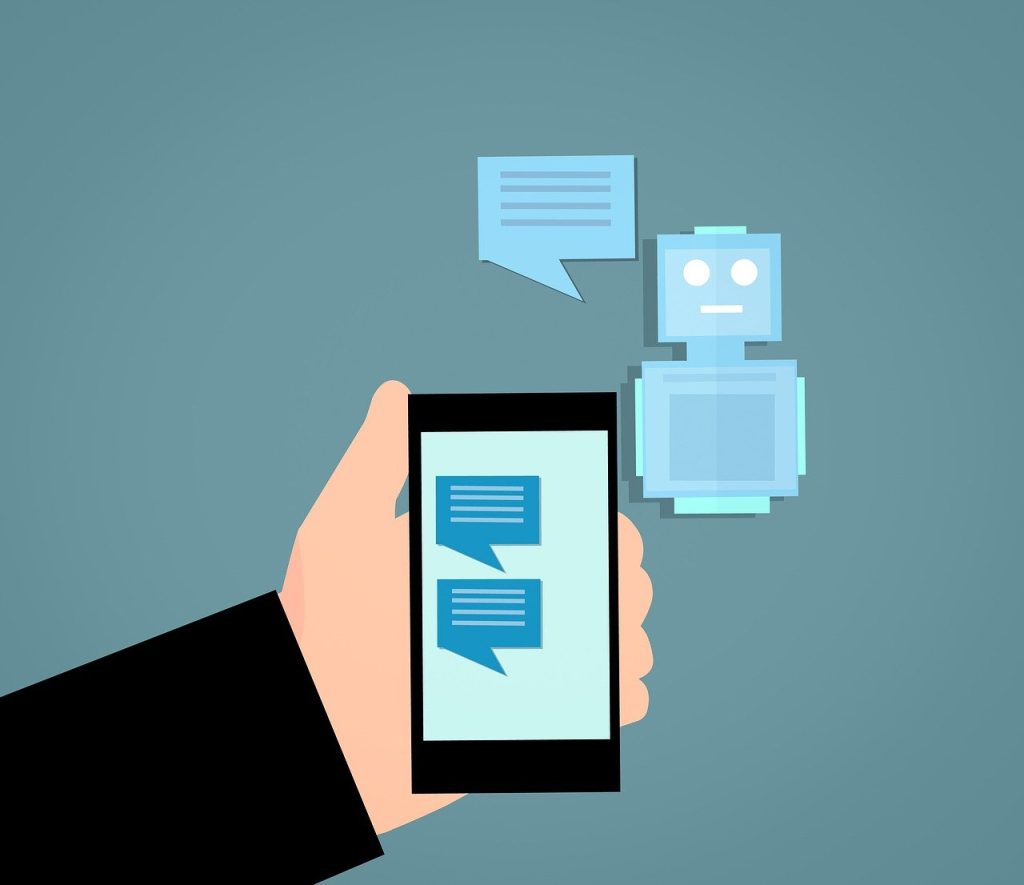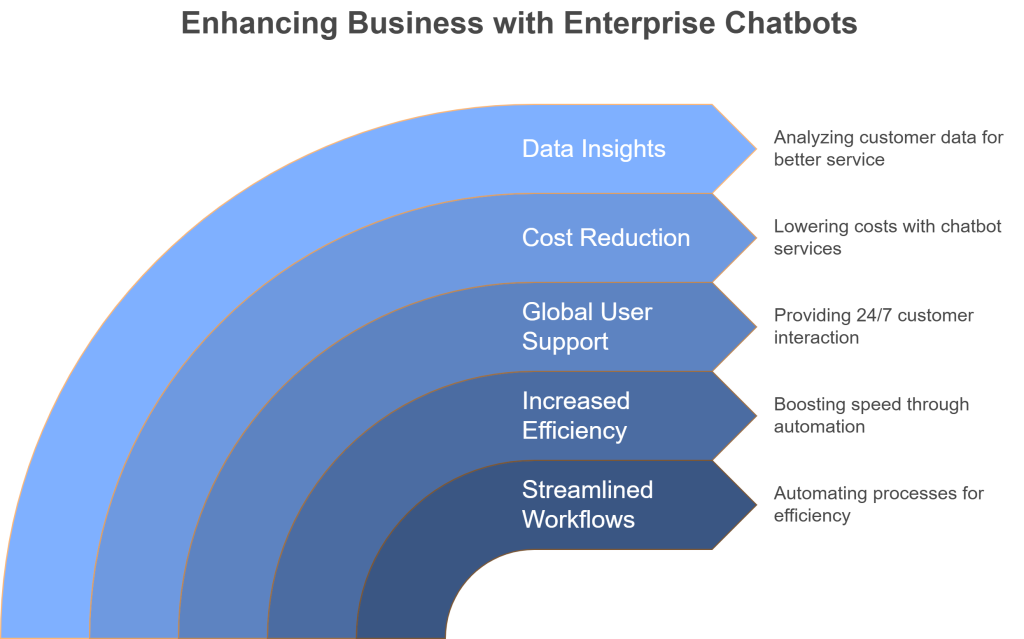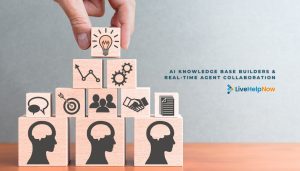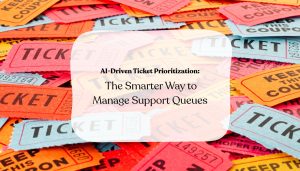More and more businesses are implementing digital solutions in their day-to-day operations. Their goal is to streamline certain tasks. One way that companies are using artificial intelligence (AI) is through enterprise chatbots. These have soared in popularity across sectors.
Enterprise chatbot examples such as Amazon’s Alexa show how this technology can help companies simplify communication with clients. By automating conversations or providing answers to commonly asked questions. With chatbot enterprises and a conversational AI customer service platform, companies can save valuable time and money. They can also improve team productivity while delivering an excellent user experience and reducing customer service costs. But what exactly are enterprise chatbots and how do they work?
The following guide will answer these questions. It will also explore the advantages and effective strategies for using enterprise chatbots with customer service applications and other enterprise-level tools. Plus, it will describe best practices by using examples of successful implementations. And we’ll look at how enterprise chatbots work with enterprise resource software and enterprise apps.

What are Enterprise Chatbots?
Enterprise chatbots work by automating various tasks to help companies meet their needs. The conversational interface of these digital assistants can:
- Simplify workflows
- Answer common questions about products or services
- Improve troubleshooting for customers
- Resolve service requests
- Speed customer orders
- Access internal knowledge
But their uses are not limited to customers. Many companies also use chatbot enterprise to support HR departments and IT helpdesks with virtual agents instead of human customer service agents. Even complex requests can be resolved quickly and efficiently via internal processes.
Enterprise chatbots are designed to support communication between humans and technology. They can be programmed in different ways with scaled complexity based on need. The result is an effective chat interface that preserves human resources for other tasks. Another result is a superior customer experience along with successful conversational commerce.
How do enterprise chatbots work?
Enterprise chatbots can use different technology to simulate human conversations in different ways. The approach depends on the needs and budget of the company. The three main types of chatbot technology include:
- Rule-based chatbots
- Computational linguistics technology
- Machine learning or conversational AI
AI-powered bots built on a powerful AI platform can carry on complex conversations that answer customers’ questions. Companies often require specialized enterprise AI software development services to build and deploy these sophisticated conversational systems at scale. Guided conversations help to determine customer intent and meet user requests.
1. Rule-Based Chatbots
Rule-based chatbots are also known as “flow bots” or “decision-tree chatbots. ” They use preprogrammed sequences of questions that the user can click on to get answers.
For instance, the chatbot may provide the user with a question, such as, “What can I help you with today?” When the user answers, the chatbot presents choices for how to proceed. The user response leads them to a choice and a predefined outcome.
These types of chatbots are easy to design, cheap, and do not need a lot of computational storage. But rule-based chatbots are difficult to scale and do not process language.
2. Computational Linguistics Technology
This type of technology uses advanced computer algorithms to process and analyze language. Some examples of computational linguistics technology include speech recognition and machine translation. These help chatbots understand, generate and analyze language. This technology also enables chatbots to imitate human conversation. As a result, they can offer more detailed user help than a rule-based chatbot.
3. Machine Learning Or Conversational AI
Natural language processing (NLP) allows machine-learning chatbots to learn from previous conversations. This can improve their responses over time.
Conversational AI chatbots can handle open-ended questions and advanced queries. Organizations often collaborate with a modern enterprise software development partner to build these sophisticated AI-powered chatbot systems that can scale with their business needs. This type of technology generates the most natural and human-sounding responses.
Benefits of using chatbots for enterprise

Enterprise chatbots help companies streamline workflows. These include customer service department interactions and management. Rule-based chatbots can quickly direct and help customers through troubleshooting processes. More complex chatbots can take over entire task flows. These are supported by using computational linguistics technology or conversational AI.
Not only do chatbots used in enterprise ensure accuracy and scalability, but they can create a smoother workflow. They can also improve cohesion if integrated into wider company systems. These include customer relationship management (CRM) or human resource (HR) software such as criterion hris. By integrating enterprise chatbots, companies reduce costs while improving productivity across the organization.
Here is a list of other ways that enterprise chatbots can benefit your company:
Increase organizational speed and efficiency
By automating repetitive tasks, enterprise chatbots can improve organizational efficiency. For instance, chatbots can help potential customers in finding the right product or services offered by a company.
Chatbots can understand customer requirements and preferences. They can also offer tailored recommendations. And they can provide real-time business data to support informed purchasing decisions. This frees human employees to work on other issues that are of higher priority or more complex.
Provide user support across the globe and around the clock and improve customer interactions
Enterprise chatbots provide an interactive, 24/7 medium for companies to help customers and employees. More than 4 in 5 customers expect to interact with a company after visiting its website. An around-the-clock enterprise chatbot can help meet this need. Customers crave this kind of support according to a State of the Connected Customer Report by Salesforce.
Lower operating costs associated with customer service
The implementation of chatbots brings about cost savings through the following:
- Their continuous availability
- Reduced operating costs
- Streamlined handling of customer requests
Despite being accessible 24/7, chatbots operate at lower operating costs than human agents. Additionally, they exhibit swift response times, efficiently resolving customer issues. These dual benefits contribute to cost savings. Customer profiles enable chatbots to provide the personalized service that today’s customers demand.
By embracing enterprise chatbots, companies can enhance their budget planning process. They can also distribute resources in a strategic way. This results in improved operational efficiency and customer satisfaction.
Collect valuable insights and data about users or customers
When integrated with CRM, enterprise chatbots can support tracking and monitoring customer engagement. Such integration enables the enterprise chatbot to capture and analyze data on engaged users. This includes their interaction history, preferences, and buying patterns.
Armed with this knowledge and natural language understanding, chatbots can tailor their responses and recommendations. The goal is to align with each customer’s specific interests. This fosters a more meaningful and effective engagement. Companies can harness these insights to improve targeted advertisements. They also support designing new products or services.
Create a consistent experience for users or customers
Unlike human agents, chatbots offer a consistent and reliable customer service experience. This allows them to deliver exceptional service at all times.
5 Common Enterprise Chatbot Use Cases
Enterprise chatbots can meet a variety of business needs. These include providing quick, efficient customer service and streamlining in-house processes. Below are five specific use cases of enterprise chatbots. These different use cases highlight chatbot success and advantages.
1. Providing Customer-Facing Assistance
One of the most common uses of enterprise chatbots is customer service. Customers cite frustration with traditional customer service. Enterprise chatbots can help because of their consistency, efficiency, and quickness. They can also learn from previous interactions and improve as a result.
Scaling up the usage of chatbots in enterprises can help drive customer satisfaction and improve retention. From intelligent assistants to live chats and automated troubleshooting services, chatbots offer support.
2. Generating Sales and Leads
Chatbots can also help companies maximize sales by turning visitors into potential buyers. They can do this in many ways. Chatbots can engage visitors by asking questions about their interests. They can then suggest customized products or services.
Plus, chatbots can keep visitors engaged while browsing the website. How? By asking a series of questions about their likes and dislikes.
Additionally, Chatbots can help customers book personalized appointments and sales calls. For instance, here we wrote about the H&M fashion chatbot that helps shoppers find the right size or connect with a live agent.
Since chatbots are available 24/7, companies do not have to worry about losing potential leads. Customers receive the help they need at any time of the day. Companies are able to save time and money. Plus, automating certain parts of customer service frees up time for employees to focus on other tasks.
3. Collecting Customer Feedback

Gathering customer feedback is a challenging yet vital part of any business. It helps businesses to understand and address any issues faced by customers. It also provides valuable insights for improving products, services or customer experience.
Enterprise chatbots can streamline this process by asking questions after an online sale. Another approach is to use a questionnaire after a customer service interaction. Whatever approach you use, chatbots can yield accurate, meaningful, and useful customer feedback.
4. Streamlining HR Departments and Managing Employees
Harnessing the benefits of enterprise chatbots is not limited to customer-facing uses. Another impactful use of HR chatbot solutions is in the company’s HR department. HR often dedicates a lot of time to addressing repetitive questions about its policies and processes.
But with enterprise chatbots, HR employees can effectively address these straightforward queries. This frees up their valuable time to concentrate on more complex tasks that take more time. The result is improving the efficiency of the organization.
5. Answering Employees’ Common IT Support Questions
At large companies, IT departments are oftentimes overrun with troubleshooting issues and questions. Enterprise chatbots can act to provide efficient support. This includes everything from resetting passwords to providing solutions for technical glitches.
IT helpdesk chatbots can provide employees with 24/7 support. In these situations, chatbots are useful since they offer accessible and immediate help. In cases where a live human agent is needed, the chatbot can escalate the issue to ensure a swift resolution.
Common Questions About Enterprise Chatbots
Q: Can enterprise chatbots only be used on websites?
The short answer is no. Enterprise chatbots help companies engage with customers, employees, and other stakeholders. This includes a range of communication channels, such as SMS, mobile apps, or even email. If you want to delve deeper into the topic of SMS chatbots, check out this article.
Q: What kind of chatbot is the best for enterprises?
This depends on what you want the chatbot to do and what needs your company has. However, chatbots that use AI technology, machine learning or NLP are usually good fits for enterprises. Why? Because they can learn from past interactions and improve their responses over time. These types of enterprise chatbots are highly scalable. They can integrate with other core systems, enabling personalization and customizable interaction.
Q: How accurate are enterprise chatbots?
Several factors influence the accuracy of chatbots. These include:
The level of information they’re programmed with
- The quality of training data they receive
- The complexity of tasks they’re designed to handle
It is important to distinguish between rule-based chatbots and self-learning chatbots. The former operates based on predefined rules and responses. They can handle simple questions very effectively. But rule-based chatbots have limits when faced with unique or complex questions or situations.
In contrast, artificial intelligence and machine learning algorithms power self-learning chatbots. They improve their understanding of human conversations over time. These chatbots learn from their interactions with users and the data they gather. As they gather more data and user feedback, their accuracy and ability to provide accurate responses tend to improve.
Q: Can enterprise chatbots provide support in many languages?
Yes! You can program enterprise chatbots in more than one language. Self-learning chatbots can also learn new phrases to communicate with users and customers across the globe.
Enterprise Chatbots: Business Helpers at Work
Enterprise chatbots provide companies with versatile and effective tools for engaging with stakeholders. These include customers and employees across a range of communication channels.
By incorporating enterprise chatbots into their communication strategies, businesses can:
- Optimize engagement
- Improve customer satisfaction
- Drive operational efficiency
Chatbots have emerged as a key tool for customer service. Today, they serve as a primary channel for brands to engage with consumers. But HR departments and IT help desks benefit from chatbots, too.
Chatbots enable personalized interactions. They also automate routine tasks, provide instant support, and streamline processes. The result is improved user experiences, greater operational efficiency, and strengthened relationships.




